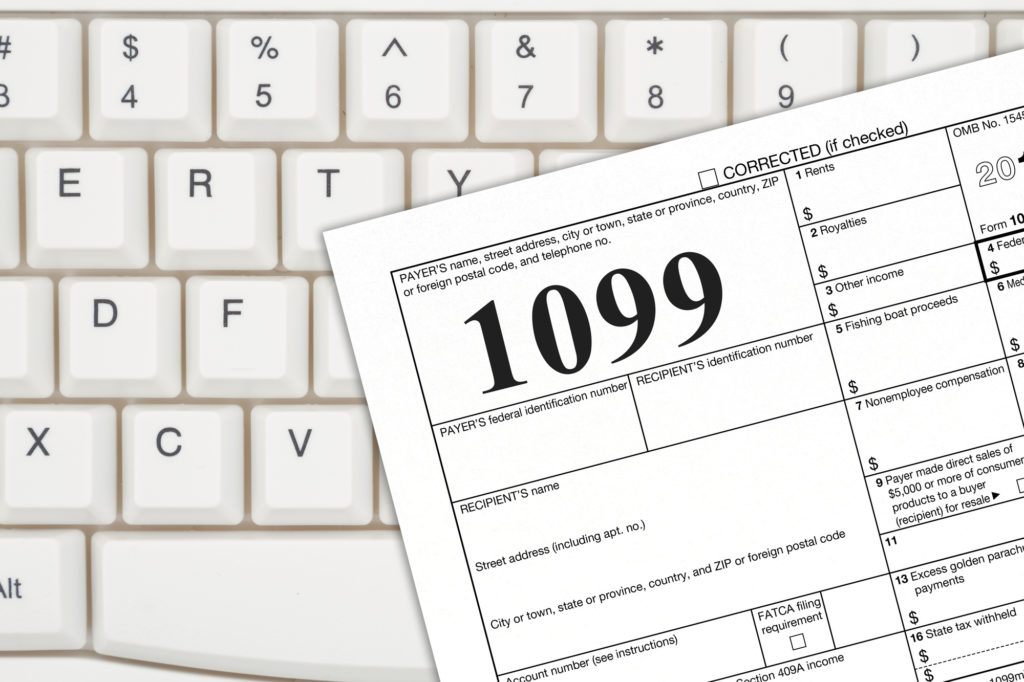
We’re coming up on the fourth fiscal quarter of this year and tax season waits right behind it. Fiscal quarters might not mean a lot if you work for yourself, but taking care of taxes should.
Filing your own taxes as an independent contractor is a must, and you need to know how to do it.
Paying taxes as an independent contractor is a must, and you need to know how to do it.
Believe it or not, paying independent contractor taxes has its benefits. You get to claim certain deductions for expenses you pay as a contractor. For example, if you work from home, you get to claim that wifi bill you might not like paying every month.
You also have control over your withholdings. Instead of paying federal and state taxes on every client payment, you get to make four payments a year.
Like everyone else, independent contractors have to pay taxes. This guide lists 5 helpful tips for paying taxes as an independent contractor.
1. Paying Taxes as an Independent Contractor Means You Have to Keep Good Records
When you work for corporate America, an HR department handles all of your financial record keeping. You get a paystub weekly or bi-weekly that lists your pay and deductions.
When tax season rolls around, that same company sends you a W-2, which is a year-end summary of the money you made.
As an independent contractor, all of this responsibility falls on you. You must keep good records in order to successfully pay your taxes. You’re liable for keeping track of things like:
- Income
- Receipts
- Monthly Expenses
- Annual Deductions
- Quarterly Tax Estimates
Invest in a printer/scanner, file cabinet, cloud storage, and some portable USB drives. These serve as backups for accounting records you store on your computer. Always keep hard and digital copies for everything you have to give an account for during tax season.
2. Invest in Accounting Software
Small business owners hire accountants to sort through their monthly assets and expenses. Contractors often handle this job themselves.
Unfortunately, in most cases, contractors don’t have the best bookkeeping skills. If you can’t afford an accountant to handle your bookkeeping, invest in accounting software.
The right software keeps track of how you pay yourself and how you pay quarterly taxes. It also tracks inventory, payments, invoices, assets, and expenses.
This resource comes in handy, especially if you own a home and run your business out of it.
As a contractor, you are the business. Make sure you look into software that answers all your accounting needs.
3. Pay Quarterly Taxes
Contractors have the liberty of choosing how to pay federal and state taxes. Although you have this control, don’t wait until the end of the year to pay it all at once.
If your business’s annual tax liability exceeds 1,000, pay your taxes quarterly. Waiting until tax season to pay these taxes could put you in a financially overwhelming position.
4. Study Deductions
One of the biggest mistakes contractors make in their taxes is calculating deductions. Go to the IRS’s website and find out what deductions you’re eligible for.
Independent contractors do well in this category. They can claim deductions outside of the normal standard deductions. It’s a matter of how many expenses you incur throughout the year.
5. Hire Your Little One(s)
You read that right. If you hire your child or children to handle small business tasks, you can deduct their wages.
Independent contractors may submit a Schedule C—business profit and loss form. The best part about it is if your child’s under 18, you avoid paying social security tax. You may also circumvent Federal Unemployment Tax if they’re under 21.
This helps lowers your tax bill. As a bonus, you can contribute to an IRA on their behalf.
Pay Your Taxes Right
Paying taxes as an independent contractor isn’t as hard as it seems, as long as you do it right. Stay on top of your records. Use the right software and apps for bookkeeping and stay on the right side of the IRS.
Want to learn more ways of staying financially acute? Check out our money guide for the latest financial tips and hacks.








![Fan Expo Chicago [Convention], Donald E. Stephens Convention Center, 16 Aug What You Need to Know](https://www.thefreemanonline.org/wp-content/uploads/2024/09/Fan-Expo-Chicago-Convention-Donald-E.-Stephens-Convention-Center-16-Aug-What-You-Need-to-Know-300x200.jpg)









![Fan Expo Chicago [Convention], Donald E. Stephens Convention Center, 16 Aug What You Need to Know](https://www.thefreemanonline.org/wp-content/uploads/2024/09/Fan-Expo-Chicago-Convention-Donald-E.-Stephens-Convention-Center-16-Aug-What-You-Need-to-Know-74x55.jpg)
![Error [err_http_headers_sent] Cannot Set Headers After They Are Sent to the Client How to Fix](https://www.thefreemanonline.org/wp-content/uploads/2024/09/Error-err_http_headers_sent-Cannot-Set-Headers-After-They-Are-Sent-to-the-Client-How-to-Fix--74x55.jpg)

Add Comment